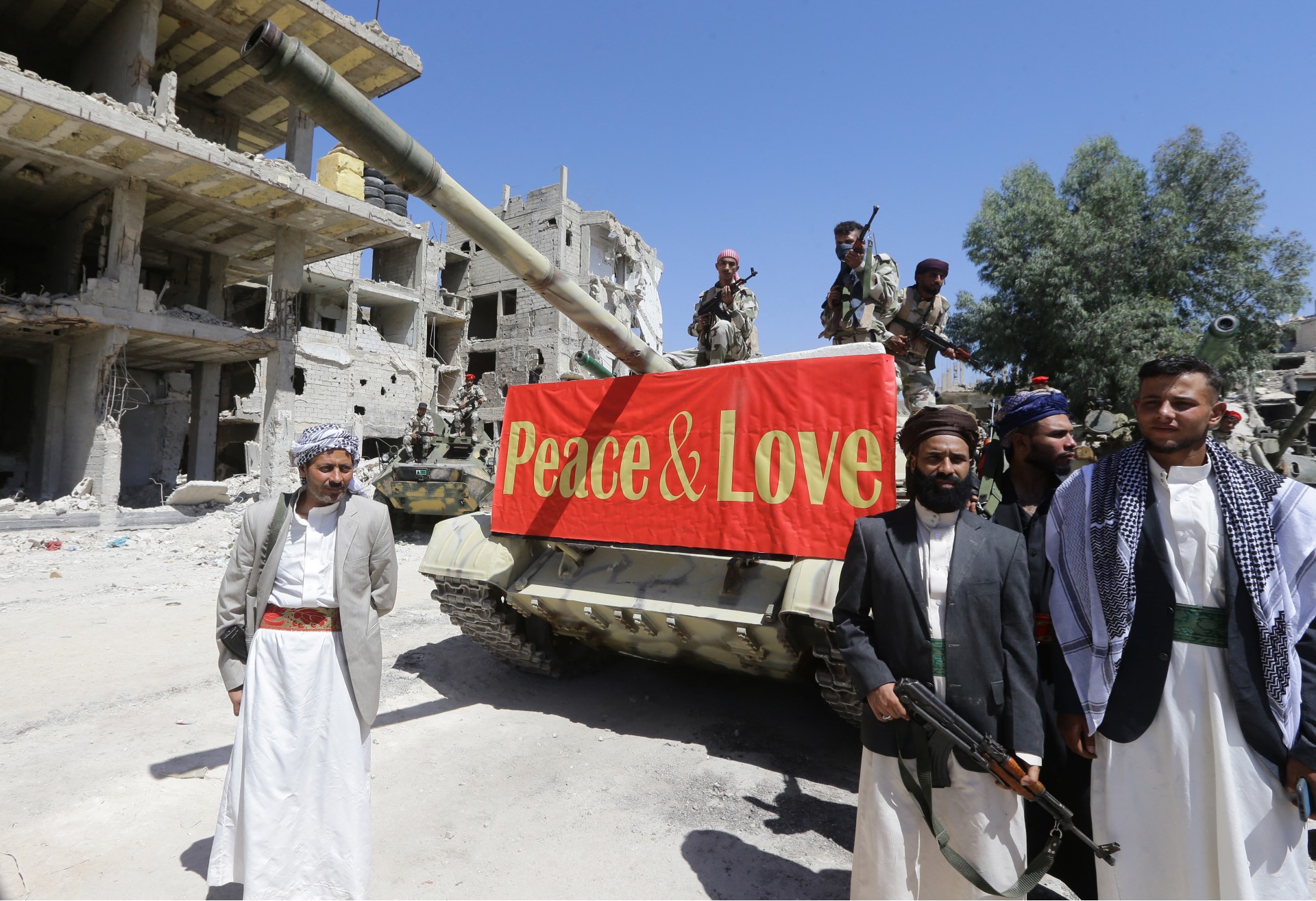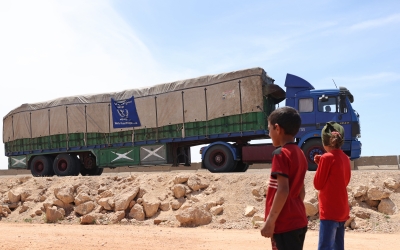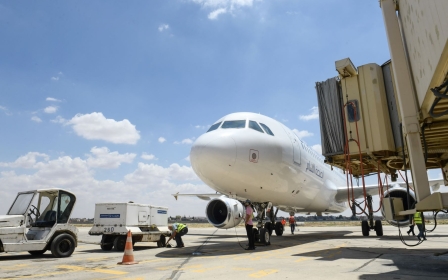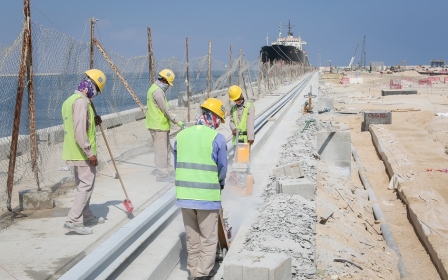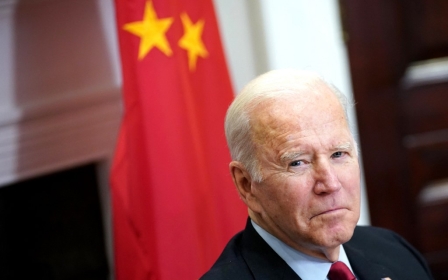Jackie Chan film in Syria is a chilling sight for displaced Damascenes
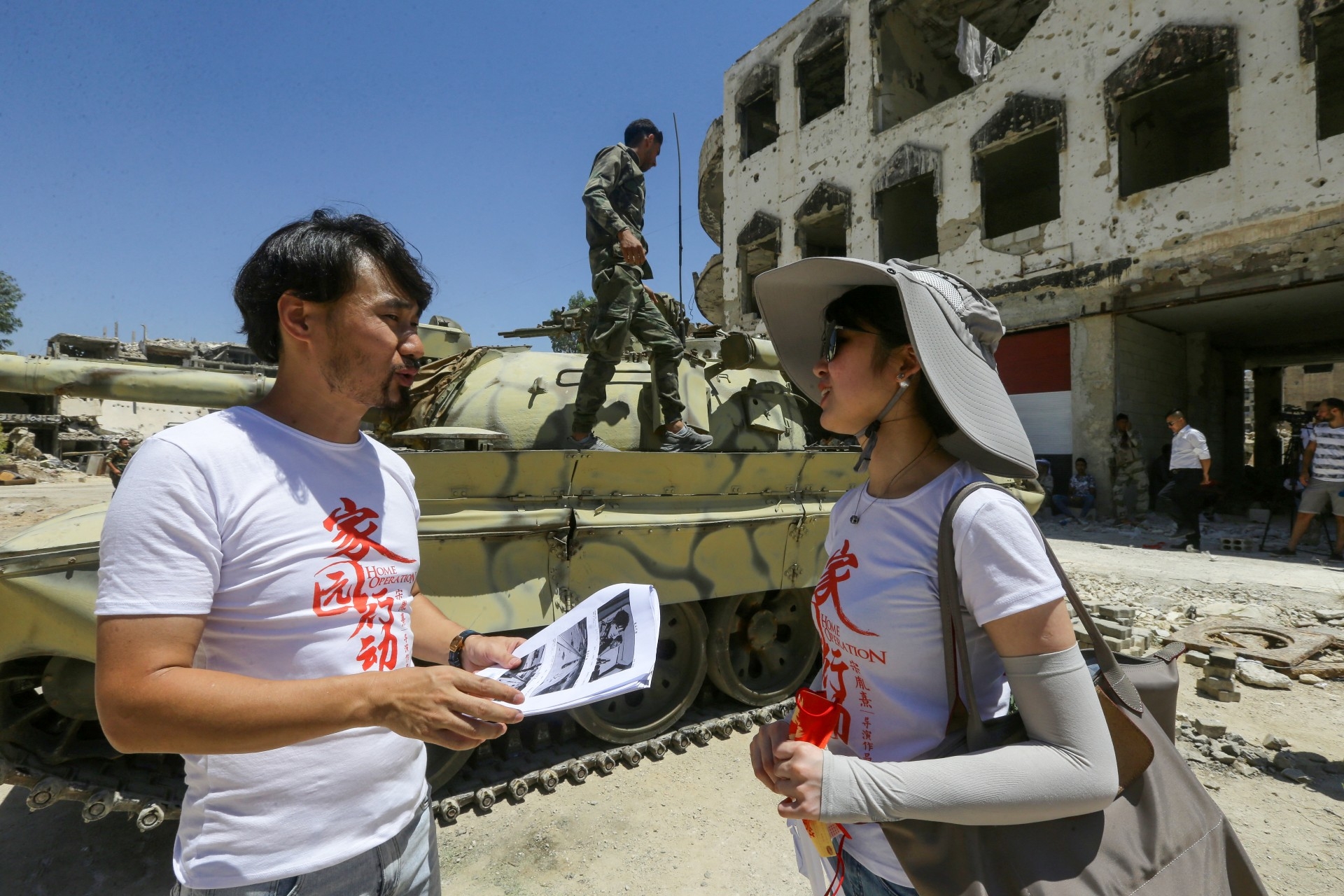
Abu Laith has seen some hellscapes in his time. He joined Syria’s revolution in 2011 as a protester, and was well known for leading demonstrations in Damascus’s Maidan neighbourhood with his powerful voice.
But like thousands of others, Abu Laith became a rebel fighter as Bashar al-Assad’s crackdown became more violent and deadly. In the suburb of al-Hajar al-Aswad, four kilometres south of the capital, he was wounded in the head while Free Syrian Army rebels staged an offensive. Several civilians were killed in that fighting in 2012, including two of Abu Laith’s friends.
Although the pain of those wounds has healed, the memories of the fighting in al-Hajar al-Aswad’s streets has not. In those early days of the conflict, the battles in Damascus’s suburbs were fought house by house, street by street. Abu Laith helped defectors from the Syrian army cross the front line and join rebel forces, a job fraught with risks and intrigue.
Yet not in his wildest nightmares did he think he would see those same streets, still war wracked and with bodies buried under the rubble, become the set for a film produced by a Hollywood superstar.
"All criminals hide their crimes, except for the Syrian authorities, who boast about destroying our neighbourhoods, making them a film set. This is very shameless," Abu Laith told Middle East Eye.
New MEE newsletter: Jerusalem Dispatch
Sign up to get the latest insights and analysis on Israel-Palestine, alongside Turkey Unpacked and other MEE newsletters
Home Operation, a Chinese-Emirati film that counts martial arts champion Jackie Chan as an executive producer, caused uproar when images began circulating last week of actors in military fatigues among Syrian tanks and artillery in al-Hajar al-Aswad.
The shooting location was revealed after the film's director, Yinxi Song, posted video footage on Instagram showing Syrian tanks rolling through the district.
The film is produced by SYX Pictures, a Chinese production company based in the United Arab Emirates (UAE), in cooperation with the Syrian government.
Home Operation was originally scheduled to be filmed in the UAE, according to an event held in Beijing last year attended by the UAE ambassador to China.
It is inspired by Beijing’s successful evacuation of 600 Chinese citizens and about 200 others in 2015 during the Yemen war, and pays tribute to the close cooperation between China and the UAE.
'We have seen our areas conquered twice, by Assad's army and now by the Chinese actors'
- Abu Laith, displaced Syrian
Al-Hajar al-Aswad was chosen as a filming location because it is safer than Yemen, according to media reports. However, there appear to be no plans for Jackie Chan to visit Syria.
The Chinese ambassador attended the launch of the film in Syria, where red banners were raised in Chinese on tanks, one of which said “love and peace”.
Unlike many countries, China maintained ties with Assad’s government after the war broke out, and has often been touted as a potential source of funds for Syria’s reconstruction, though little has been forthcoming.
Abu Laith is furious at China for using a theatre of war for its own propaganda purposes.
"We have seen our areas conquered twice, by Assad's army and now by the Chinese actors. China is a country that does not know the meaning of humanity," he said. “Instead of the Chinese filming Assad's crimes, they came without any consideration for the feelings of the victims and their relatives, to shoot a movie over the ruins of their homes.”
From Islamic State to Chinese propaganda
In the Syrian war’s early years, rebel forces surrounded Damascus and counted suburbs like al-Hajar al-Aswad ("the black rock" in Arabic) as strongholds. However, as the conflict developed, al-Hajar al-Aswad became a hub for Islamic State (IS).
Citing the presence of IS militants, pro-government forces pummelled the area, including the nearby Yarmouk Palestinian refugee camp and Tadamon. These areas, along with al-Midan and al-Zahera, were tight-knit communities, and their protests against Assad’s rule put considerable pressure on the Syrian president.
Eventually, Assad’s forces seized all of southern Damascus in 2018, displacing civilians to rebel-held northern Syria, with surviving militants fleeing south.
Ammar al-Maidani, an activist from al-Hajar al-Aswad, was one of those civilians forced to the north, where he now lives.
He described the filming of Home Operation as a “huge shock”, because “the owners of homes in Damascus were prevented from returning, while the actors were allowed to enter”.
Maidani said it will be too hard to watch the film itself and see his home and the neighbourhood he grew up in used for propaganda purposes by China and the UAE.
"There is nothing worse in the world than these Syrian authorities. They have taken advantage of Syria, even when it is destroyed, and made it a studio," said Ammar al-Qudsi, who was displaced from the Yarmouk camp.
For Fadi Shabat, another displaced Syrian residing in the rebel-held north, the images took him back to his childhood in al-Hajar al-Aswad.
“In the place where they are filming, there was a square with a large playground for the children. We played a lot in the holidays, and I spent my adolescence among those beautiful buildings,” Shabat said.
“Not only did the Chinese actors use the square, but IS operatives who were made by the Syrian security used it to film their crimes,” he added, referencing the belief among pro-opposition Syrians that the government helped develop the rise of IS.
"I always felt that my city was the scene of some sort of theatre: the emergence of IS out of nowhere, Assad's pretexts for destroying the region, and now the Chinese film.”
This article is available in French on Middle East Eye French edition.
Middle East Eye delivers independent and unrivalled coverage and analysis of the Middle East, North Africa and beyond. To learn more about republishing this content and the associated fees, please fill out this form. More about MEE can be found here.


